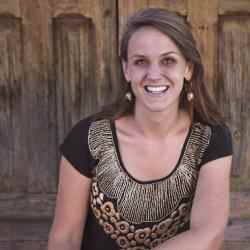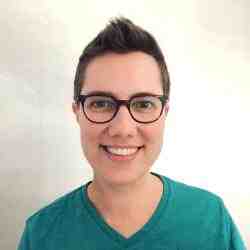Alternatal Foundation / Alternatal Alapítvány
https://www.szules.huIntroduction
Believing that the birth of a child is one of the most important human experiences, Dr. Agnes Gereb provides Hungarian women and their families with the opportunity to experience "undisturbed" birth in intimate, safe surroundings. She oversees a national network of midwives and doulas who are changing the care given to mothers, families, and infants inside and out of institutional hospitals. She unites the advantages of undisturbed childbirth with the best of modern medicine in a humane setting-at home, in her birth center, and also in the institutional hospitals she is helping reform
The New Idea
A trained obstetrician and gynecologist, Dr. Agnes Gereb, has long been dissatisfied with the impersonal atmosphere of maternity wards in Hungarian state-run hospitals. In response, she has developed an alternative-a home birthing project she calls "undisturbed" birth. She has established the first network of midwives, doulas, nurses and doctors who oversee home births throughout Hungary, and her training center has begun to train medical professionals in her techniques, which she believes neither undervalue nor exaggerate the achievements of science and technology.
Agnes' foundation, Alternatal, is currently the only organization in Hungary which ensures professional help for those who would like to give birth at home: Agnes' alternative to hospitalization in Hungary offers women the possibility of giving birth among family members in a healthy, peaceful surrounding.
Equally important, however, is the foundation's other function: Alternatal has extended its birthing practices into a program for advocacy of women's rights. First, it aims to incorporate "undisturbed birth"-through repeated demonstration of its merits and through public pressure-into the Hungarian health care system as an endorsed alternative to institutional birthing. Second, she aims to humanize the births that do take place in institutional settings by popularizing and legitimizing the use of doulas in hospitals. Finally, by producing literature that evaluates health organizations and allowing women to choose birth environments, she aims to empower them as informed consumers in a society that has long stymied consumer freedom.
The Problem
Although medical training in Hungary has long been world famous for its vigor and quality, the Hungarian hospital system and the medical community have not yet experienced the humanistic revolution in medical care that has taken place in many other Western countries. While there has been pressure for 25-30 years in the West to humanize and personalize the experience of childbirth for women, infants, and families, there is only a very modest tendency today within the monolithic state healthcare system in Hungary. This is partially due to the isolation imposed upon much of the academic community during the totalitarian era. As a result, the majority of hospitals are still very large and impersonal institutions where care for the psychological and emotional well being of patients is often ignored. Family members are still not allowed to accompany the mother into the birthing room and infants are placed in sterile, cold environments.
Such methods are not only insensitive to the emotional needs of the family-they often endanger the health of mother and child during the birth process. The caesarian rate in Hungarian hospitals is artificially high, and doctors have little knowledge of safer practices-including the use of doulas-that have been popularized in the west.
During this period of structural adjustment, the Hungarian government is unable to invest in supplies, modern equipment or even in appropriate salaries for nurses and doctors who are extremely underpaid. The healthcare system is in crisis, with dramatic governmental cuts to hospitals and other healthcare facilities only increasing the pressure to maintain the status quo and not think in terms of alternatives and innovations. These economic factors are not conducive to creating a positive atmosphere in hospitals. As a result, patients often find that hospitalization is a dehumanizing and traumatic experience. Agnes believes that this environment interferes with parent-child bonding and has lasting effects on the child's development.
Approximately 120,000 women give birth annually in Hungary. Increasingly, women are looking for alternatives to a system that they no longer trust. Birth is generally viewed as a doctor-centered event: procedures revolve around their schedules and not around the needs of mothers and their families. What's more, many young doctors and nurses who were once enthusiastic about working in maternity wards in Hungary have become disinterested and indifferent when placed in state-run institutions that do not provide human contact, counseling, and intimacy-the quality of care in these institutions is thus further decreased.
The Strategy
Agnes became increasingly dissatisfied with the spectrum of opportunities at state-run birthing institutions for women and their families. She not only discovered a lack of alternatives, but she also disagreed fundamentally with the approaches and systems which became popular in the 1990s and still exist today. Therefore, in 1993, she established her Alternatal Foundation, which has become a model institution. Agnes' foundation offers alternatives to families, providing them with the opportunity to discover individualized ways of giving birth (these can include traditional hospitals or clinics, birth centers, or the home).
Agnes sees her innovations as part of an "unlearning" of the professional techniques she was taught by the medical establishment, and she continually explores new ways of making birth as meaningful as possible. She has found, for instance, that maintaining silence after a baby is delivered is often preferable to talking, and that placing a newborn gently next to the mother rather than handing the infant to her allows her to initiate the newfound intimacy on her own terms.
Through the Alternatal foundation, she organizes training programs for professionals, midwives, and families. She counsels couples and families intensively before they make the decision to opt for her "undisturbed" birth. In this way, she helps mothers and fathers discover and decide exactly what they truly want to do without any pressure. She also trains doulas, who are not midwives, but rather mothers experienced in childbirth who provide continuous physical, emotional, and informational support to the mother before, during, and just after childbirth.. Agnes' methods have been statistically proven to reduce the number of complications for mother and child. International statistics reveal that the presence of a doula reduces the number of "complications" by 25 percent, as well as reducing the caesarian rate by 50 percent and the use of drugs by 30 to 40 percent.
Agnes directly participates in 10-20 births a month in Hungary, and she is working to increase those numbers through the consolidation of her own birth center. Her birth center is currently operational, although its grand opening is planned for the year 2000. Once fully operational, it will not only house training programs and work groups but will also serve as an alternative location for women and children at birth. She will train nurses who will be able to assist births without the presence of doctors (Hungarian nurses are currently trained only to serve as doctors' assistants).
Her objective is to make the "Sunnyside" Birth Center in Erd, outside of Budapest, a national model. Eighty percent of the house is ready. She has facilities to house 6 birth rooms and a national training center. From September 1997 on, she has used part of the house for work groups and training. Apart from overseeing the completion of the center, Agnes also recruits, trains and manages a national network of midwives and doulas who advise and assist some 250 clients a year.
Importantly, Agnes is also involved in a struggle at the national level for the full legalization of alternative births. The cost of home birth is substantially less than institutionalized birth in both the short and long term. Hospitals beds, equipment and drugs are typically not required in undisturbed births, and both children and their mothers end up healthier. Parents contribute a fee to her foundation of about $75 for pre-natal training and then an additional $175 for the birth itself-in total, only half the price of a birth in a state-run hospital. This allows Agnes to employ the midwives and doulas needed in the program. These are just some of the arguments that Agnes wields in the public debate over birthing methods.
A recent addition to her public outreach program is the composition of a manual which rates Hungarian medical facilities and hospitals for their "birth friendly" qualities. This manual will be available to the public and is the first consumer manual of its kind in Hungary.
Agnes believes that her efforts will be successful on a large scale-that her program will become integrated into the provisions of both private and national health insurance and definitively transform birthing methods nationwide. After extended negotiation, the parliament of the first non-communist government approved national budgetary funding for Agnes' program from the Ministry of Health. The subsequent government decided to rescind this decision, however, partly due to hostility from the traditional medical community in Hungary.
While fighting for a new verdict from Parliament, Agnes has gone out to solicit private sponsorship in order to complete the construction of her facility: while the government's hesitation has slowed her progress, it not at all stopped it or decreased the influence of her work over the last three years. She now has as many clients as her team can manage. Her project is spread by word of mouth and by the press, which has shown persistent interest in her work.
Perhaps most importantly, Agnes has won an important legal victory in the area of hospital births. As of June 6, 1998, mothers giving birth in hospitals can request that their friends and relatives be allowed into the birthing room. Not only does this greatly humanize the experience of birthing, but it spreads the influence of the doulas, who can now legally attend hospital births upon request. Agnes is thus not only training the doulas but also creating a market for their services and allowing mothers greater choice when it comes to birthing environments. These doulas, besides attending to expectant mothers, also act as watchdogs of hospital behavior, ensuring high standards of care. Professional doulas maintain contact and support with their families after birth as well.
The Person
Agnes first became acquainted with psychiatry during High School, when she worked as an assistant nurse at the Clinic of Psychiatry in Budapest for a summer. She soon realized that she would be more useful in the field of prevention than in treating disease, and switched to obstetrics and gynecology. As a medical student, she was granted permission to enter a labor room where she, by chance, witnessed a still birth. She stayed with the woman until it was all over and she felt how important her presence was to the woman. She then trained at the Clinic of Obstetrics and Gynecology and discovered to her great disappointment how hospitals practice birthing. At one point, she was suspended from birthing rooms for six months as punishment for allowing a husband into the room with his wife during labor. As an obstetrician working in a hospital for 10 years, she facilitated 1,000 births and she says she cannot remember a single one distinctly. In the 700 subsequent "undisturbed" births at home, she claims to remember each one very clearly. A Hungarian filmmaker has just won an award to make a film about Agnes, characterizing her as a true democrat in contemporary Hungary. Agnes is a mother of four.




